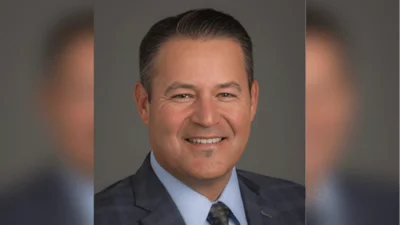Shannon Zimmerman, Wisconsin State Representative of 30th District | Facebook
Shannon Zimmerman, Wisconsin State Representative of 30th District | Facebook
According to the Wisconsin State Legislature's official website, the bill was described as follows: "prohibiting abandonment of a boat and providing a penalty".
The following is our breakdown, based on the actual bill text, and may include interpretation to clarify its provisions.
In essence, this bill prohibits individuals from abandoning boats in Wisconsin waters or on adjacent riparian land without the landowner's consent. Abandonment is defined as leaving a boat unattended for over seven consecutive days or neglecting a boat in disrepair that poses a safety or environmental hazard. If law enforcement determines a boat is abandoned, they must notify the owner to remove it within 30 days. Failure to do so may result in fines up to $10,000, imprisonment for up to nine months, or both. Additionally, violators must obtain a boater safety course completion certificate. Immediate removal of boats is permitted if they pose immediate hazards. The bill takes effect upon enactment.
The bill was co-authored by Senator Rob Stafsholt (Republican-10th District), Representative Barbara Dittrich (Republican-99th District), Representative Cindi Duchow (Republican-97th District), Representative Chanz J. Green (Republican-74th District), Representative Rick Gundrum (Republican-58th District). It was co-sponsored by Senator LaTonya Johnson (Democrat-6th District), Senator Steve L. Nass (Republican-11th District), and Senator Van H. Wanggaard (Republican-21st District), along one other co-sponsor.
Shannon Zimmerman has co-authored or authored another 18 bills since the beginning of the 2025 session, with none of them being enacted.
Zimmerman, a Republican, was elected to the Wisconsin State Assembly in 2017 to represent the state's 30th Assembly district, replacing previous state representative Dean Knudson.
In Wisconsin, the legislative process starts when a senator, constituent, group, or agency proposes an idea for a bill. After drafting, the bill is introduced, numbered, and referred to a committee for review and public input. If approved, it moves through three readings and votes in both the Senate and Assembly. Once both chambers pass the same version, the bill goes to the governor, who can sign it, veto it, or let it become law without a signature. Only a small share of bills introduced each session ultimately become law. You can learn more about the Wisconsin legislative process here.
| Bill Number | Date Introduced | Short Description |
|---|---|---|
| AB249 | 05/08/2025 | Prohibiting abandonment of a boat and providing a penalty |
| AB245 | 05/02/2025 | Modifying the sales and use tax exemption for qualified data centers. (FE) |
| AB234 | 05/02/2025 | The electronic vaping device directory and electronic nicotine devices. (FE) |
| AB209 | 04/23/2025 | Creating a hazard mitigation revolving loan program, creating a Great Lakes erosion control revolving loan program, providing an exemption from emergency rule procedures, granting rule-making authority, and making an appropriation. (FE) |
| AB204 | 04/23/2025 | Creating a video game production tax credit and making an appropriation. (FE) |
| AB199 | 04/15/2025 | Reimbursement of emergency services under the Medical Assistance program when a patient is not transported, reporting on changes to the scope of practice of emergency medical responders and emergency medical services practitioners, and eligibility for the expenditure restraint incentive program. (FE) |
| AB172 | 04/09/2025 | Consumer data protection and providing a penalty. (FE) |






 Alerts Sign-up
Alerts Sign-up